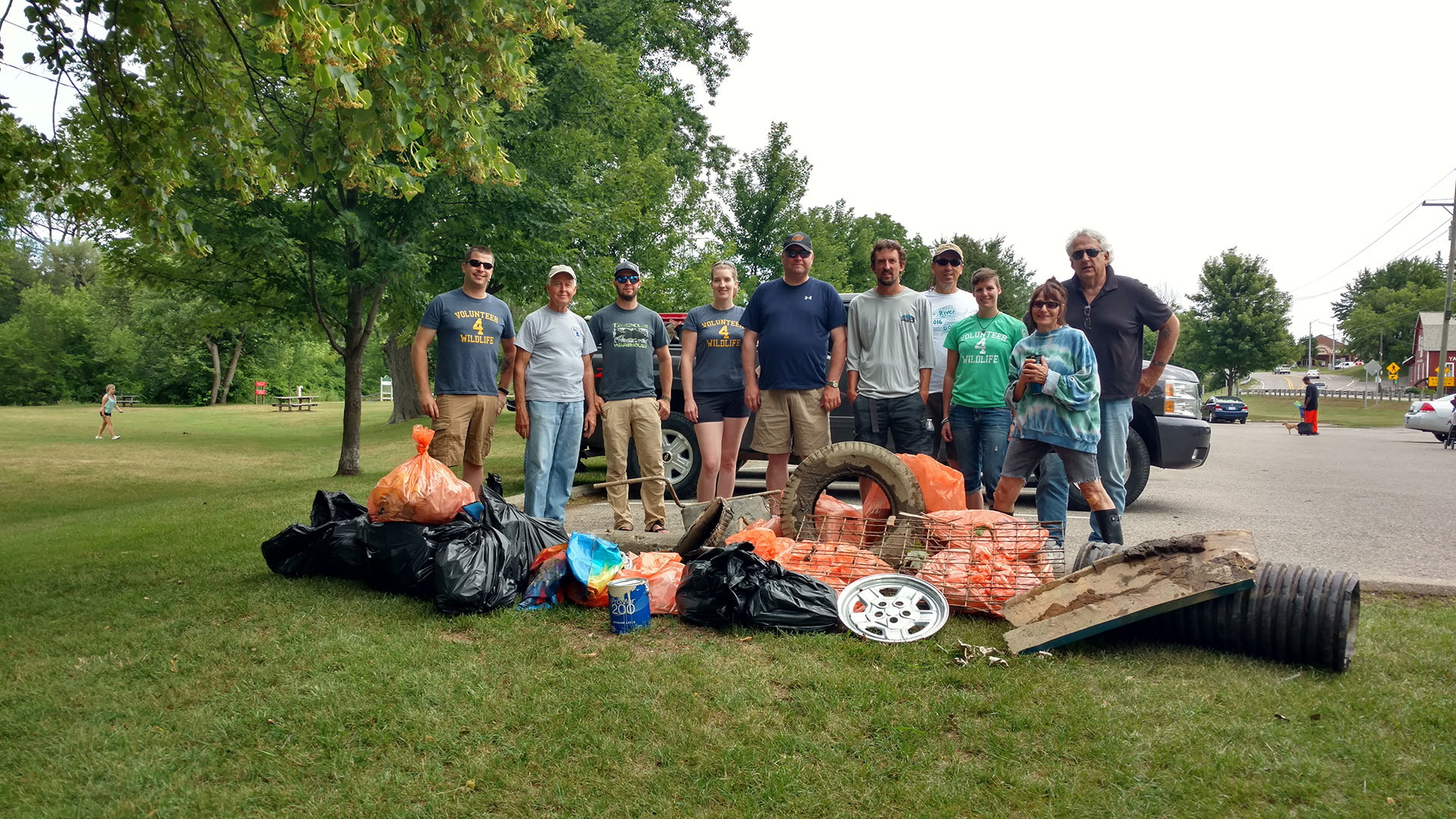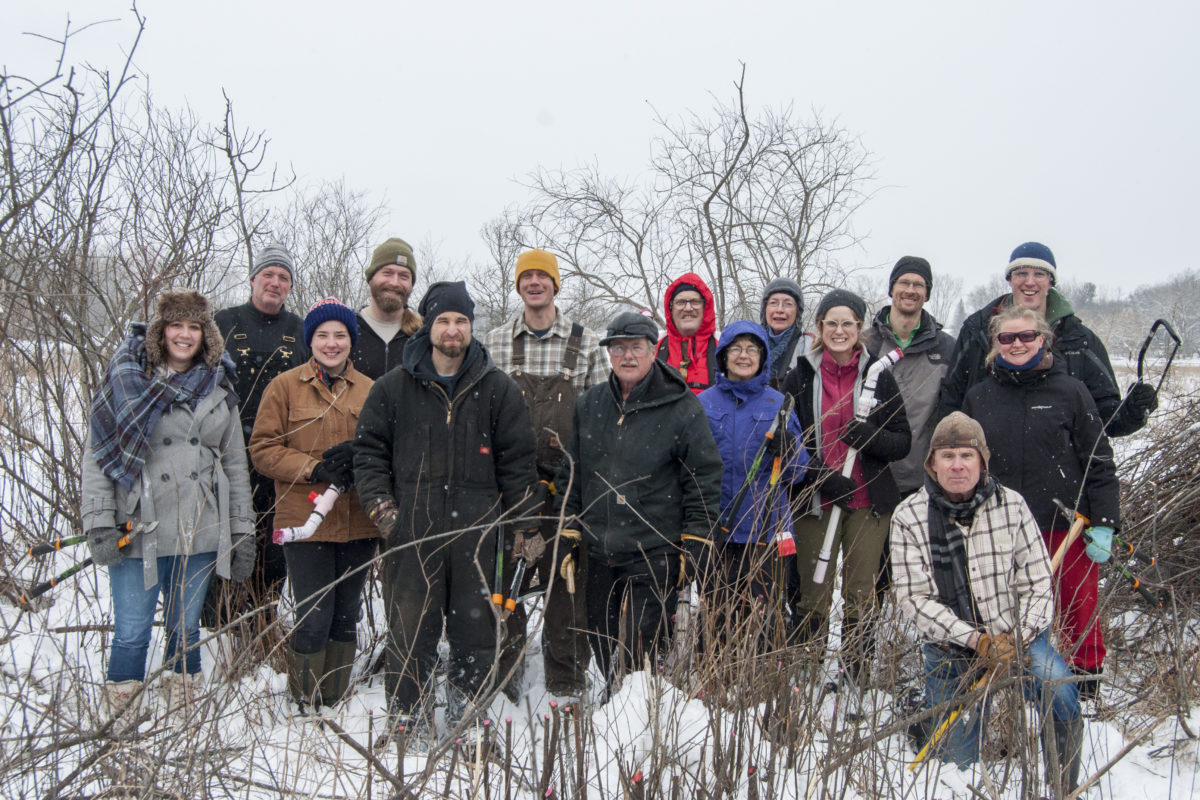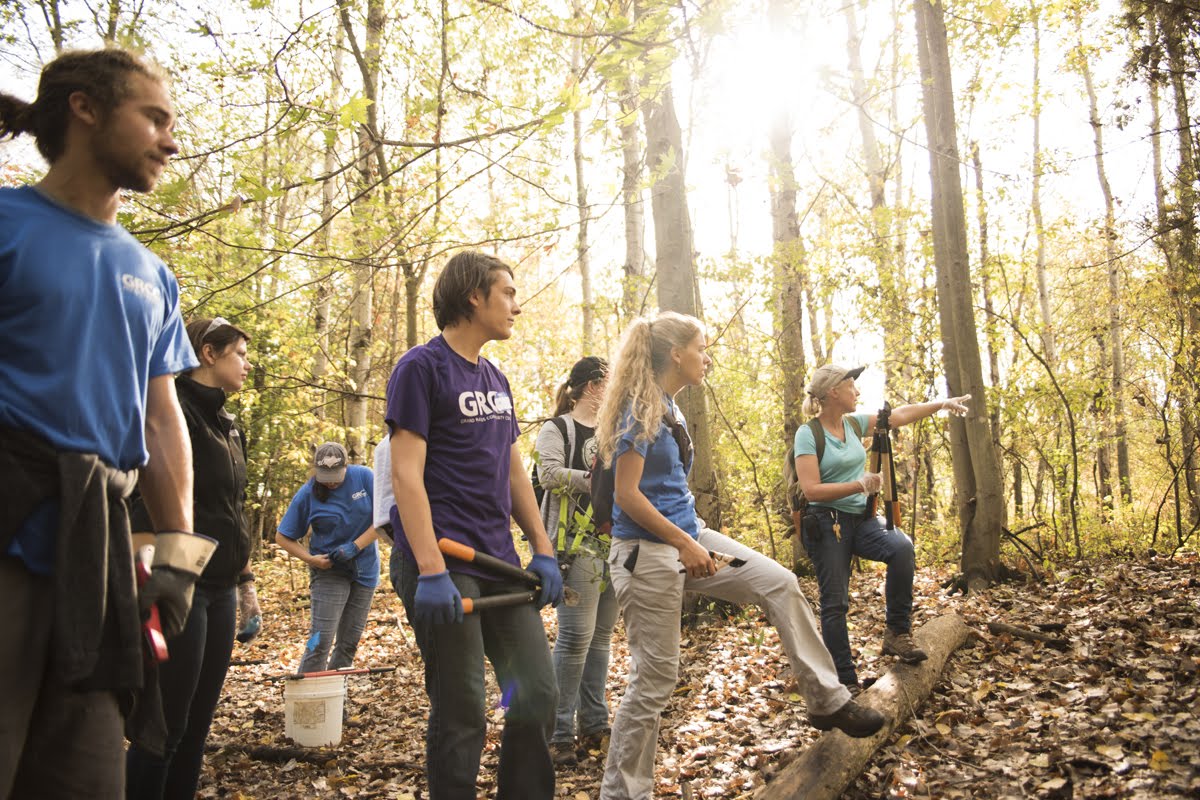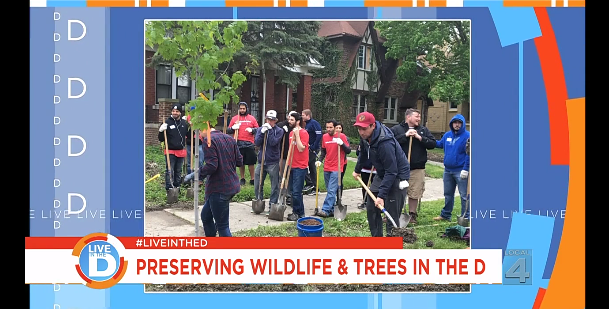For some participants in a July 16 cleanup of the Clinton River in Oakland County, the main goal was to help boost fish populations. Others wanted a cleaner river to enjoy for activities such as canoeing or kayaking. Whatever their motivations, the cleanup left all groups satisfied and, organizers said, served as another example of outdoor lovers of all kinds coming together to preserve the state’s natural resources.
“Essentially, it’s for the preservation and the overall benefit of the river,” said Adam Trenz, who organized the Metro-West Steelheaders participation in the effort. “Without someone stepping up and doing it, what would the river look like?”
Joining members of the Steelheaders in the cleanup were volunteers from the Clinton River Watershed Council and the Michigan United Conservation Clubs On the Ground program.
During the three hours the 15 volunteers spent cleaning a 2-mile stretch of the Clinton River at Yates Park in Rochester Hills, they removed more than 200 pounds of trash, including items such as a tire, a large metal grate, a bucket of paint, many bottles and cans, plastic and the occasional shoe.
At the previous two of what has become an annual cleanup, the groups picked a total of 700 pounds of trash from the water.
“Beyond the science-based management of our forests, waters and wildlife performed by state and federal agencies, these types of volunteer-led efforts are essential to preserving Michigan’s outdoor heritage for future generations,” said Henry Stancato of the Michigan Wildlife Council.
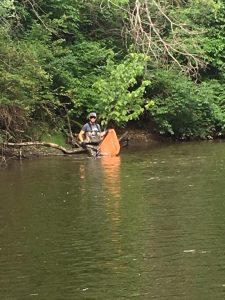
Complementing the DNR
Indeed, Sarah Topp, the Michigan United Conservation Club’s wildlife volunteer coordinator, said the On the Ground program – which she oversees – was created to undertake projects that Michigan Department of Natural Resources staffers otherwise lacked the time or resources to handle.
Launched in 2013, the program draws from a roster of 350 volunteers who complete a couple dozen conservation projects throughout the state every year. The On the Ground program is funded in the form of a DNR Wildlife Habitat Grant through a portion of hunting and fishing licenses sold each year.
For instance, among other endeavors, On the Ground volunteers so far this year have also planted trees to create elk habitat in the Pigeon River Country State Forest and cut black locust trees in the Rose Lake State Wildlife Area northeast of Lansing to make homes – known as “rabbitat” – for small game animals.
On the Ground focuses on projects that improve habitat for game species and sport fish on lands open to the public for hunting and fishing. For example, the underlying reason for the Clinton River cleanup was to remove barriers to fish spawning sites, Topp noted.
On the Ground projects also serve to show the general public that those who hunt and fish are “true conservationists,” the program’s website states.
That’s a message that resonates with many volunteers with varied outdoor interests, Topp said.
“We get a lot of volunteers who don’t hunt or fish but they like to bird-watch, for example,” she said. “Everyone understands that what we do creates opportunity for seeing wildlife.”
The Metro-West Steelheaders have a similar philosophy regarding their community involvement, Trenz said.
“It’s all about leaving it for the future,” he said. “It’s not always about harvesting. I probably release 90 percent of the fish I catch each year. It’s about having access to resources.”
While most individual conservation projects performed by volunteers are relatively small in scale, cumulatively they serve as an important complement to the DNR and other agency professional management of Michigan’s outdoor resources, Topp said.
“Sometimes, Mother Nature needs an assist,” she said. “I wish more people took time to understand the benefits of various types of management techniques.”
Topp said volunteers are welcome to join other On the Ground projects slated for this summer, including:
- Aug. 7, Grayling State Forest
Pruning apple trees in a historic orchard that has been thriving on state lands, providing soft mast to the area’s whitetail deer, black bear, elk, small game and birds. - Aug. 13, Barry State Game Area
Cutting down black locust trees and utilizing them to build large brush piles for “rabbitat.” - Aug. 27, Shingleton State Forest
Planting trees and shrubs in the Garden Grade Grouse Enhanced Management Site. The habitat work will benefit grouse, woodcock, deer, snowshoe hare and many other species.
For more information on MUCC’s On the Ground program, go to www.mucc.org/ontheground. Those who would like to volunteer for an On the Ground project can contact Sarah Topp at stopp@mucc.org or 517-346-6493.
